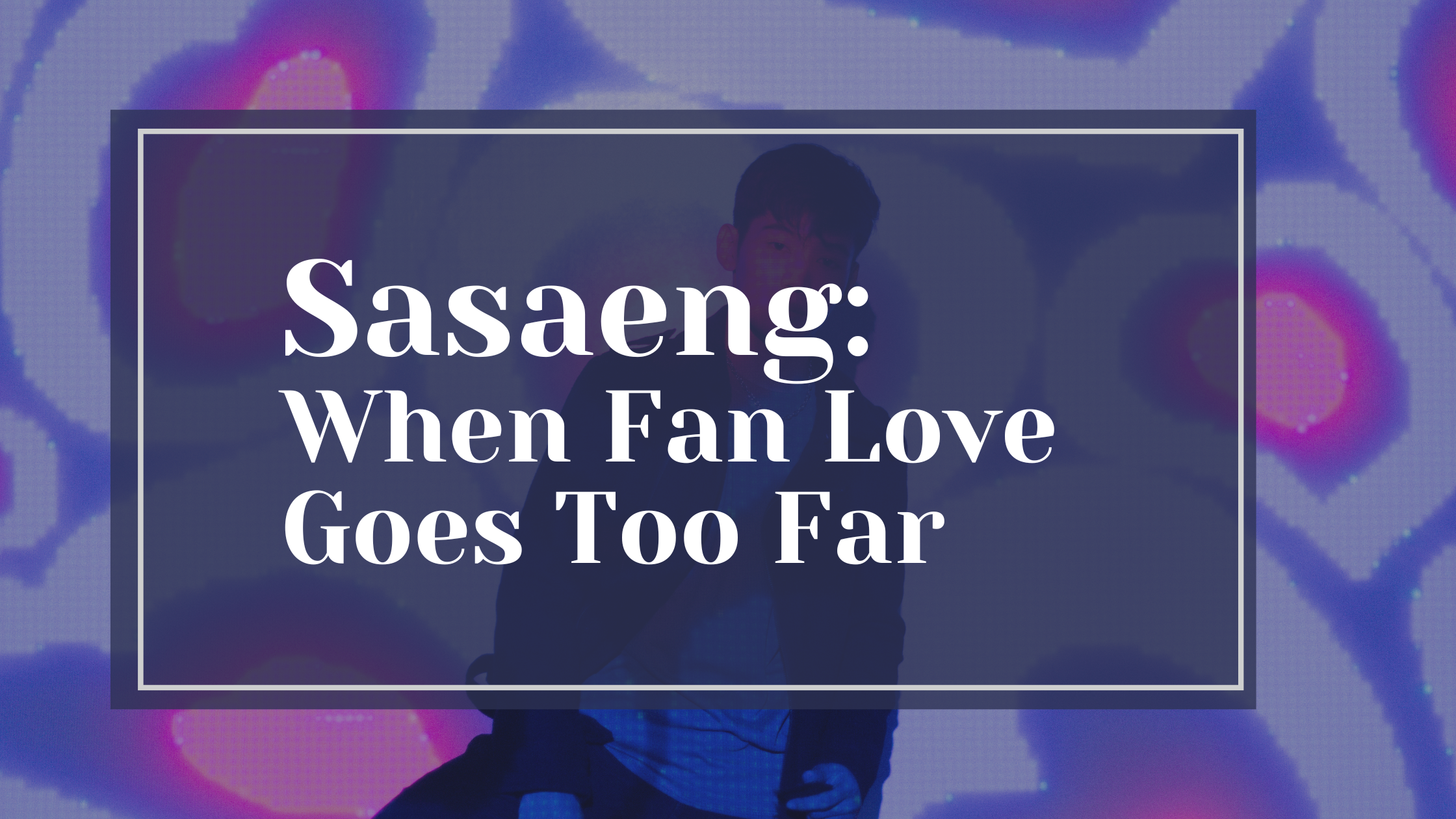If you’re a K-POP fan, you’ve probably heard the term “sasaeng” before.
Sometimes misunderstood as simply “super fans,” sasaengs often cross serious boundaries—and in many cases, their behavior is borderline criminal, or even illegal.
In Korea and Japan, sasaengs are not considered true fans. They are heavily criticized, both by fandoms and the general public.
In this article, we’ll break down what a sasaeng fan really is, how their behavior differs from regular fans, why this culture still persists, and which idol groups are most commonly targeted.
💌 Want more K-POP deep dives like this?
Subscribe to Hello Bias Letters, our free Substack newsletter!
Each week, we unpack K-POP culture with care—from fan behavior to behind-the-scenes stories.
→ Join us here
What Does “Sasaeng” Mean? How Are They Different from Regular Fans?
The word “sasaeng” comes from the Korean word for “private life” (사생활, sasaenghwal).
A sasaeng is someone who violates the personal privacy of an idol—crossing the line between public admiration and invasive obsession.
Unlike official fans (공식팬) who support idols at concerts, online events, and public appearances, sasaengs go further.
They track idols’ homes, schools, and even flight seats to get close—often without consent.
What Do Sasaengs Do? These Incidents Happen Across All Group
While some think sasaengs are just a few extreme fans, nearly every group has been affected.
Most sasaengs are reportedly from Korea, Japan, or China—but TWICE’s Nayeon once had a German male sasaeng who made headlines.
Sasaengs target both male and female idols, often putting them under enormous stress.
Worse still, some people enjoy seeing idols uncomfortable or frightened, which adds another disturbing layer.
Here are some of the most common sasaeng behaviors:
✈️ Following Idols at Airports
K-POP idols often have close fan relationships, and many fans wait at airports to see them.
However, sasaengs take it further—they find out the exact flights, then book seats next to or behind the idols.
The idols are forced to spend entire flights stuck next to strangers who are invading their space.
🚕 The “Sasaeng Taxi”
Some sasaengs wait outside concert halls or work sites, then chase the idol’s car using taxis.
In extreme cases, they even stay at the same hotel, ring doorbells, or try to approach the idols in elevators or hallways.
📞 Illegally Obtaining Phone Numbers and Spamming Calls
It’s shockingly common for idols’ phone numbers or KakaoTalk IDs to be leaked.
Insiders at phone companies have been accused of selling this information, and fans sometimes trade it among themselves.
Sasaengs often call idols during livestreams, hoping to get a reaction.
🏠 Showing Up at Dorms or Family Homes
One sasaeng reportedly had a key to BIGBANG’s dorm.
They allegedly broke in and searched through the idols’ belongings.
G-Dragon was known to have cussed them out—and who could blame him?
🎁 Sending Dangerous “Gifts”
TVXQ’s Yunho once accepted a drink from a sasaeng posing as a fan—only to fall ill after realizing it contained glue.
Since then, Yunho reportedly never accepts fan drinks again.
These kinds of acts are deeply disturbing and clearly cross the line.
These examples are just the tip of the iceberg.
In interviews and shows, many idols have opened up about being harassed by sasaengs.
Loving an idol is understandable—but there are limits that should never be crossed.
Top 3 Groups With the Most Sasaeng Problems (Rumored)
There’s a clear pattern:
The more popular a group is, the more likely they are to attract sasaeng attention.
In some cases, sasaengs compete with each other to stand out—leading to more extreme behavior.
Here are three groups frequently mentioned in sasaeng-related incidents:
🥇 BTS
With global fame comes serious risks.
There have been multiple incidents of hotel room numbers being leaked, and sasaengs contacting idols mid-broadcast.
Jungkook once received calls during a VLIVE, and he appealed directly to fans, saying, “We’re human too.”
Sadly, despite his plea, the harassment has continued.
🥈 EXO
Even in their early years, EXO faced serious sasaeng problems.
Some broke into members’ homes or studios—Chanyeol had to file a police report after a stalker invaded his work space.
The infamous “Kim Yeo-shin Incident” also involved a sasaeng threatening to give a member a drink laced with acid at a concert.
EXO’s peak era saw one of the largest sasaeng fanbases—a twisted reflection of their massive popularity.
🥉 NCT
With over 20 members and multiple sub-units, NCT’s movements are easier to track.
One sasaeng followed members during a sledding video shoot, and the moment was caught on YouTube.
During a VLIVE, a member even exposed the sasaeng’s phone number in frustration after repeated calls.
Even so, the harassment continues to this day.
※ This ranking is based on public reports and online discussion, not official data.
Why Doesn’t Sasaeng Culture Go Away?
Industry Structure: Idol-Fan Intimacy
Korean idols often provide very personal fan service.
At fansign events, it’s not unusual to talk as if you’re dating.
Some fans lose sight of boundaries and spiral into sasaeng-like behavior.
Agencies also carry some blame—they’ve long benefited from obsessive fan behavior.
While some companies are getting better at protecting idols, this hasn’t always been the case.
Social Media and Fan Validation
Online, fans often compete—who spends more money, who goes to more events, who gets more attention.
This creates a toxic culture where “doing more for your idol” equals being a better fan, and in some cases, leads to stalking behaviors.
Legal Limitations
In Korea and Japan, anti-stalking laws are limited and often don’t apply clearly to fan behavior.
When female fans stalk male idols, society tends to downplay the danger.
Sometimes, agencies even quietly tolerate sasaengs if they’re spending money—making legal action more difficult.
🛡 How Idols and Agencies Are Fighting Back
Thankfully, many agencies are starting to take action:
- Making private schedules confidential
- Hiring more security staff
- Issuing legal warnings (e.g., SM, HYBE)
Idols themselves are also speaking out, using VLIVE or social media to ask fans not to cross the line.
Thanks to increased awareness, more fans now recognize sasaeng behavior and speak out against it within fandoms.
💬 Final Thoughts: What Can We Do as Fans?
Loving K-POP is beautiful. But respecting idols as human beings is just as important.
As fans, we can:
- Think twice before sharing private information online
- Avoid glorifying or reposting sasaeng behavior
- Recognize that true support doesn’t violate idols’ boundaries
Let’s protect our “biases” not just with passion—but with empathy and respect.
✨ Not sure what “maknae” means? Click here for our beginner’s guide.



コメント